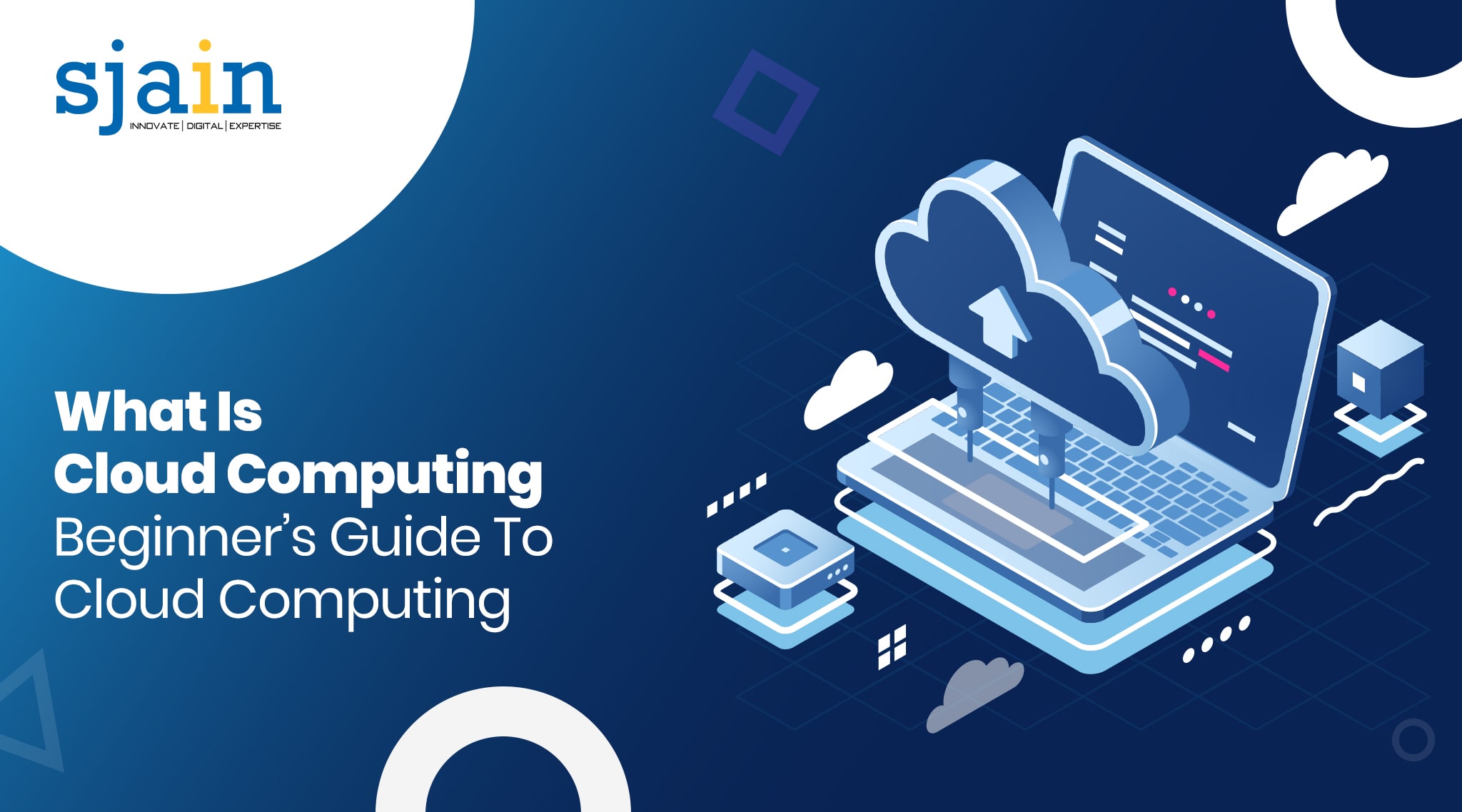What Is Cloud Computing: Beginner’s Guide To Cloud Computing
What is cloud computing? And, more importantly, should you be using it? Here is everything you need to know about – what exactly is cloud computing technology, what is cloud in cloud computing, and what is the use of cloud computing.
The idea behind Cloud computing (also known as cloud services or software as a service) technology dates back to the 1960s and 1970s when computer scientists first proposed that computers should be connected so that they could share software and peripherals.
In 1983, a company called Videotex (later renamed Telidon) built one of the first large-scale cloud computing networks. Since then, the concept of cloud computing has grown in popularity as it offers many benefits to both businesses and consumers.
Over the past decade, cloud computing has gone from an unknown idea to the next big thing to one of the most influential technologies in business today. But what exactly is cloud computing? For many people, it’s still a fuzzy concept that they struggle to explain or understand – but not anymore!
This beginner’s guide will help you understand what is cloud computing and where it came from, as well as show you how you can use this technology to your own advantage.
First off, though, let’s go over some definitions of cloud computing that may be helpful to have in mind as you read through this guide.
What Is Cloud Computing?
Is it some type of computer, or a software program? In the simplest sense, cloud computing is the way that companies are storing and managing information. The technology behind it allows for data storage and management on remote servers.
This means that instead of computers in an office being linked together as one network, they connect to a server somewhere else over the internet.
It gives companies access to a whole lot of extra space for data storage. And best of all, it costs less than having all your own hardware and software! You may be wondering what the use of this technology might be for you- from finance firms to video game developers, there are plenty of industries that can benefit from cloud computing.
Read: 5 Profitable Benefits of Virtualization in Cloud Computing
Cloud computing technology is a way of storing data and programs. Essentially, it is a way of storing data or software on servers. The most common types of cloud computing technology is the following: software as a service (SaaS), platform as a service (PaaS), and infrastructure as a service (Iaas).
Understand What is Cloud Computing Technology From A Business’s Point Of View
As the world of technology continues to evolve, so does the way businesses operate. With businesses continuing to grow and expand, the need for efficient and effective technology becomes more important.
Cloud computing can help businesses save money on infrastructure costs by hosting their applications and data on a remote server. This allows for quick and easy access, which can be especially helpful for busy business owners.
Thus, Cloud computing technology has become a popular way to store and access information, as it lowers business expenses compared to traditional methods. Moreover, it allows you to take advantage of the power of the internet without having to worry about setting up your own servers or dealing with the maintenance of those servers.
With cloud computing, you can have a computer server hosted by a third-party provider, allowing you to store and access your business resources from anywhere in the world. This flexibility makes cloud computing a great solution for any business.
What Is The Use Of Cloud Computing?
The use of cloud computing can be summed up as a series of services that are provided over the internet or intranet. This service uses a cloud, which is a network of computers, to deliver content and software applications over the internet. This service can be used for many purposes, but one common purpose for this service would be data storage.
A company might not want all its data stored in one physical location because it could put its information at risk if that location was compromised by an attack or natural disaster. Companies may choose instead to store their data on servers around the world so they have access to it when they need it.
Cloud computing technology allows people and organizations to efficiently provide computer services through shared resources rather than owning everything themselves.
Advantages of Cloud Computing
The advantages of cloud computing are many. More than likely, you’re already using a form of cloud computing without realizing it. If you’re ready to take advantage of this incredible technology yourself, here’s what you need to know.
1) Cost Savings:
The cost of operating a server in the cloud is less expensive than having an on-site server. It also eliminates the need for additional hardware which can save a business up to 40% on its IT budget. The economies of scale that come with using the cloud also mean that businesses will have access to more powerful servers at a lower cost than if they were purchasing and maintaining their own servers.
2) Elasticity:
Businesses want their IT resources available when they need them but not when they don’t. Cloud computing makes this possible. When users want to upgrade their apps or software, they’re able to quickly provision new servers without any downtime as well as additional storage or processing power instantly. With private clouds, companies pay only for what they use so there are no overpayments or underutilization issues.
Disadvantages of Cloud Computing
Cloud computing technology has grown significantly in recent years, with some experts predicting that it will eventually overtake the market. However, like any new technology, cloud computing comes with its share of disadvantages.
Chief among these disadvantages are security and privacy concerns. Hackers and malware distributors often target data stored on the cloud as they can access all of your information at once instead of going after individual devices or servers.
In addition to security issues, there is also the risk of privacy issues when using the cloud. This can be due to several different factors including what type of service you use, who owns and manages that service, and how much control you have over your own data when it resides on the cloud.
The level of responsibility and liability that the cloud provider takes varies greatly, so do your research before signing up for an account. If a company such as Yahoo were hacked, their customers could lose both their personal data and business-critical information about their company’s customers.
One example of what this might entail would be if hackers stole names, birthdays, email addresses, passwords (even encrypted ones), and Social Security numbers from millions of Yahoo users; then sold this personal data on the black market for $100 per person to criminals looking for victims’ identities.
Also Read: Importance Of UI UX Design For Creative Business Website
Examples of Popular Cloud Services
The use of cloud computing technology has become an essential part of modern-day business and its rise has made it easier than ever before for small businesses and entrepreneurs to store their data online, access remote storage services, and collaborate with others online.
Many companies offer a wide range of cloud services, including web hosting and data storage. Take a look at some of the most popular options below:
Google Apps –
Google Apps offers basic office software like word processing, spreadsheets, presentations, email, calendar management, and so on.
AWS Cloud (Amazon Web Services Cloud) –
AWS Cloud has many use cases such as cloud migration, cloud operations, content delivery, database migrations, data lakes, analytics, edge computing, and front-end web & mobile development.
Microsoft Azure –
Microsoft Azure offers virtual machines and storage accounts that are durable and highly available. It has scalable cloud storage and functional cloud servers as well.
IBM Cloud –
IBM Cloud offers hybrid cloud management and cloud migration. It is an open and managed cloud service.
Future Trends in Cloud Computing
The cloud computing industry will continue to be shaped by advancements in technology. There are various types of cloud technologies, including Infrastructure as a Service (IaaS), Platform as a Service (PaaS), and Software as a Service (SaaS).
The growth in technology has created many new opportunities for small businesses looking for ways to grow their company without significant investments in physical infrastructure.
With the rise of the Internet of Things and wearable devices, it’s anticipated that the cloud will become even more prevalent over the next few years. As more people utilize these technologies, there will be an increased need for larger amounts of data storage space.
Conclusion
Cloud computing technology has revolutionized the world of business. It has made doing business easier for all companies, no matter how small. There are many benefits of cloud computing, such as reduced cost and increased efficiency. If you’re thinking about making your next move into the cloud, there is no better time than now!

